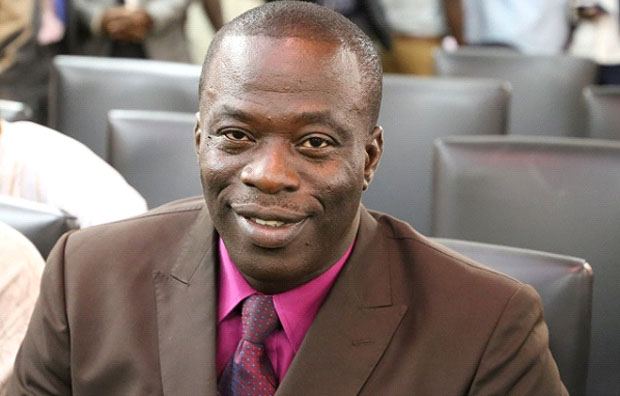Ignatius Awuah Baffuor
Ignatius Baffour-Awuah, Minister of Employment and Labour Relations, has called on private sector and government to collaborate, strategise and explore opportunities in the informal sector to address the high unemployment among the youth.
According to him, such collaboration would help to reshape the private sector to become the engine of growth for the nation.
“As the Minister of Employment, I feel so sad when I see young people not working because these are people who are within their productive ages, and are supposed to use their energies to work so that we can deliver and transform the economy of this country for the better,” he said.
He disclosed this while speaking at a five-day trainer-of-trainers workshop on business start-up and growing the business in Accra recently.
The training, organised by the Private Enterprise Federation, in collaboration with the Management Development Productivity Institute, was funded by the African Development Bank.
It attracted participants from the Association of Ghana Industries, Ghana Chamber of Commerce, Association of Building and Civil Contractors of Ghana and Ghana Gas and Fuel Operators of Ghana.
The Minister stated that everywhere in the world, the private sector has been playing a lead role in employing young people because it has the prospect of employing about 85 percent of the workforce.
Government’s efforts so far
On Wednesday, President Nana Addo Dankwa Akufo-Addo, launched his administration’s 7-year Co-ordinated Programme of Economic and Social Development Policies in Accra.
In his address, he said although his administration had only been in office for 15 months, its track-record in the first year indicated that the Agenda for Jobs, which formed the basis of his electoral victory in the 2016 election, was on course.
According to him, “Many of the identified flagship projects under the Agenda have already been launched, some are being effectively prepared, and others planned for their imminent take-off.
He added that the bad economic situation he inherited from the previous administration had been reversed, adding that the economy was on a defined road of revitalization.
“The defined actions include the effective management of the economy with assertive fiscal, monetary and debt controls; establishing a national digital addressing system; launching of the 10-point industrialization agenda, including the “One District one factory” initiative; establishing a national tax evasion hotline; creating the Development Authorities for the Northern, Middle Belt, Coastal zones of our country; instituting the Zongo Development Fund and the facilitation of an electronic payments system, especially for salaries and utilities,” he said.
NEIP training
The Ministry of Business Development is also organizing a nationwide entrepreneurship training programme for over 7,000 entrepreneurs for free as part of the National Entrepreneurship and Innovation Plan (NEIP) officially outdoored last year by President Akufo-Addo.
The NEIP was launched in July 2017 with a seed capital of $10 million, with efforts being made to increase the amount to $100 million through Private Sector Implementation Partner (PSIP).
NEIP primarily aims at creating the conducive and business-friendly environment to stimulate enterprise activities and provide integrated national support for start-ups and small businesses that would in turn create employment opportunities for others.
By Samuel Boadi


